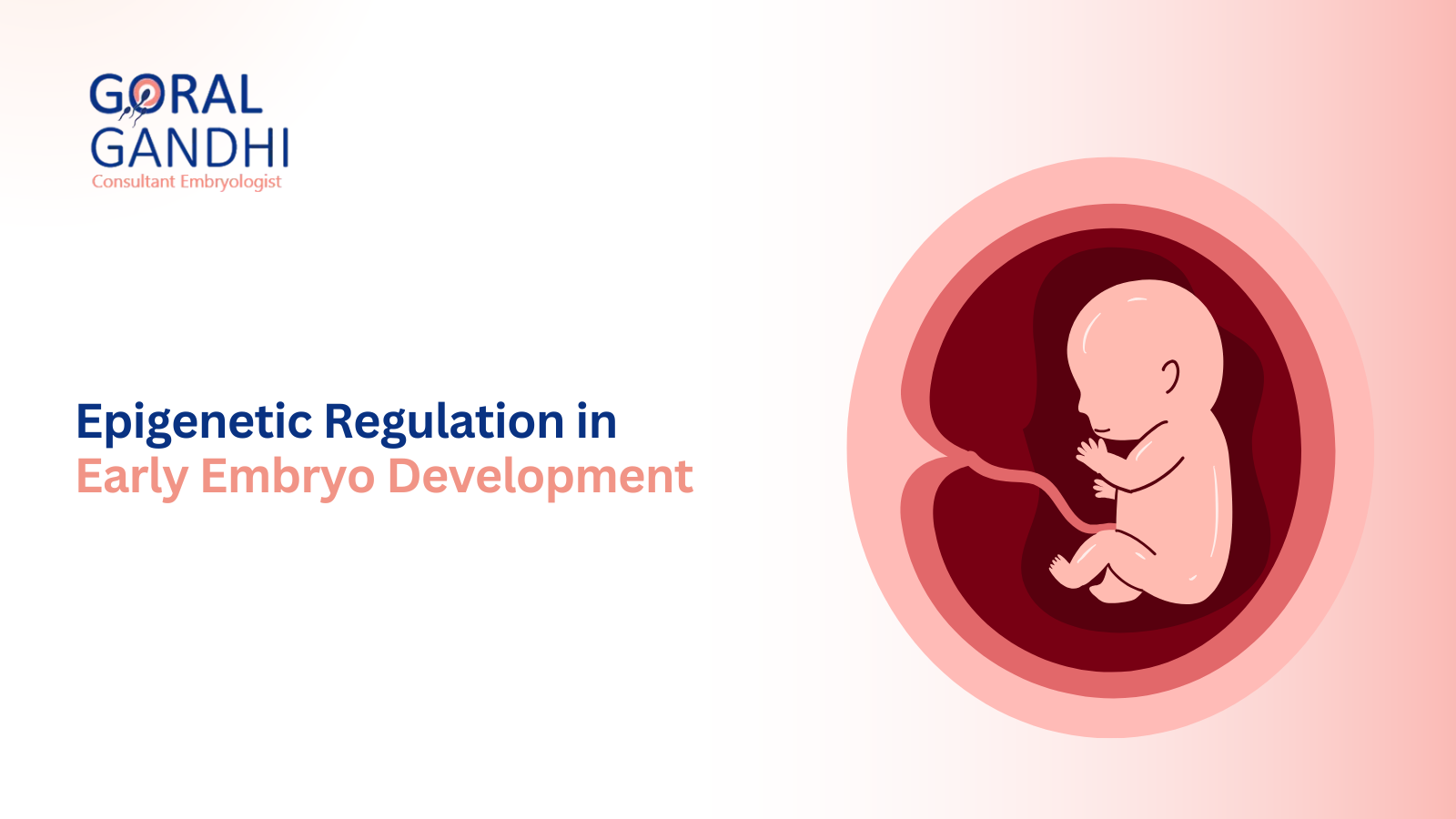

E-Brochure - Download Now!


Epigenetics is a fascinating and powerful process that plays a pivotal role in regulating gene expression during early development. It involves mechanisms that influence how genes are turned on or off without altering the underlying DNA sequence. This regulation is crucial in guiding the transition from a single-celled zygote to a fully developed organism.
In this blog, we will explore how epigenetic gene regulation influences early embryo development, gene expression, and cellular differentiation.
Epigenetics refers to changes in gene expression that do not involve changes to the DNA sequence itself. Unlike genetics, which focuses on the sequence of nucleotides in DNA, epigenetics involves modifications that can turn genes on or off. These changes can be passed down to future generations but do not alter the actual genetic code.
Epigenetic regulation involves several mechanisms:
These mechanisms control how genes are activated or silenced, ultimately influencing cellular functions during early development.
1. Zygote to Blastocyst Transition
Epigenetic regulation plays a central role from the fertilised egg (zygote) through to the blastocyst stage. The genome undergoes reprogramming, resetting the epigenetic marks to ensure genes are correctly expressed. Key modifications, such as DNA methylation, help guide the embryo through these early stages, preparing it for proper differentiation.
2. Cellular Differentiation and Lineage Commitment
Epigenetic changes also influence cellular differentiation. During early development, stem cells begin to differentiate into various cell types, such as somatic cells or germ cells. Epigenetic regulation ensures that cells commit to specific lineages, such as muscle, nerve, or blood cells, all governed by precise epigenetic mechanisms.
1. Gene Regulation and Organogenesis
Epigenetic regulation is key to organogenesis, the process by which organs are formed during development. Gene expression patterns, regulated by epigenetic modifications, direct the formation of organs like the heart, brain, and lungs. For instance, specific genes are activated at particular times to ensure the correct formation of the heart's chambers or the development of the brain's neural circuits.
2. Epigenetic Memory and Cellular Identity
As cells divide and multiply, epigenetic marks are passed along, maintaining cellular identity and ensuring each cell retains its role. This "epigenetic memory" ensures that once a cell differentiates into a certain type, it continues to function as that type throughout its life, crucial for maintaining the proper function of organs and tissues.
1. Consequences of Epigenetic Alterations
Disruptions in epigenetic regulation can lead to a variety of developmental disorders. Conditions such as Prader-Willi syndrome and Angelman syndrome are examples of disorders linked to epigenetic dysregulation, where the wrong genes are either turned on or off due to faulty epigenetic mechanisms.
2. Environmental Factors and Epigenetic Changes
Environmental factors, such as toxins, diet, and stress, can also impact epigenetic regulation. These external influences can alter the expression of genes that are crucial for proper development, potentially leading to health issues later in life.
Cutting-edge tools like CRISPR and epigenetic editing are revolutionising the field of genetics and epigenetics. These technologies allow scientists to modify the epigenome, potentially offering treatments for various developmental disorders by correcting epigenetic errors.
Understanding an individual's epigenetic profile holds great promise for personalised medicine. By studying a person's epigenome, doctors may be able to develop targeted treatments for health conditions, including infertility, cancer, and metabolic diseases, based on how their genes are regulated.
In conclusion, epigenetic regulation plays a fundamental role in early embryo development, guiding gene expression and ensuring proper cellular differentiation. This process shapes not only the development of organs but also the health and well-being of future generations.
Epigenetic research holds significant promise for understanding human development and improving treatment options for developmental disorders. Staying informed about advancements in this field can provide valuable insights into reproductive health and broader medical applications.
Curious about how epigenetic regulation affects your fertility? Epigenetics plays a significant role in embryo development and reproductive health. Schedule a consultation with Goral Gandhi, a leading IVF consultant, to understand how epigenetics can influence your fertility journey and help enhance your chances of a successful pregnancy.